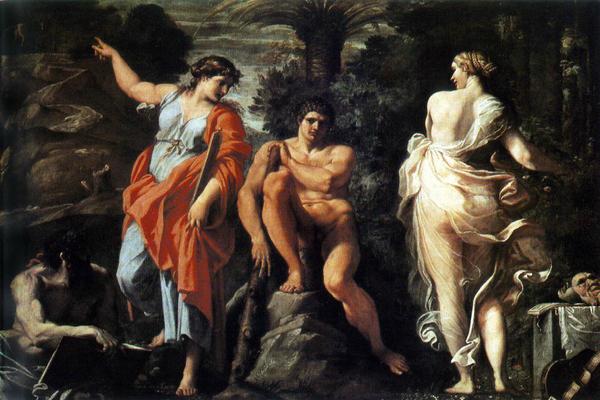Utilitarians think your moral success depends on the outward consequences of your actions. Kantians think it all depends on your inward intentions. Today we look at a different theory, one that assumes that the most important part of being moral is forming your own character. We’ll also consider why we should try to be good — should we be moral because we want to avoid the social problems that would come with people thinking we’re immoral? Or is there something intrinsically valuable about being a good person?
Read This:
Interactive Essay: Why Be Good? Book II of Plato’s Republic
Key Concepts:
- Instrumental goods vs. intrinsic goods
- The “Ring of Gyges” thought experiment
Do This:
- Complete lessons 1-6 of thinkARGUMENTS by Tuesday, September 16.
Pre-Class Questions
With each day’s reading, you will be given a set of questions to help you check your understanding of the material and prepare for class. Your responses are due on Canvas before class. See the syllabus for grading information. Your top 15 scores of the semester will count toward your final grade.
- In your own words, explain the difference between intrinsic goods and instrumental goods, and give an example of each (other than those found in our reading).
- Do you think most people would do bad things if they knew they could get away with it? Why or why not? (If you would like to practice your argument mapping skills, you can give your response in the form of an argument map.)
Map to the Good Life
In an upcoming dialogue meeting, your dialogue leaders will introduce the Map to the Good Life project, which will consist of a series of activities where you’ll reflect on the broader philosophical and personal implications of material from class. For some of the activities, you’ll be asked to choose a prompt from the class website to address. The prompt below will be one of your options for Activity #1, which will be due before your dialogue group meeting on September 29 or 30. You don’t need to do anything with it until this activity is officially assigned on September 22/23.
Have you ever been in a situation where you had to choose between doing the morally right thing and acting in your own self-interest? Describe the situation, and explain what factors led you to make the choice you did. Do you think most other people would have made the same choice in that situation? Why or why not?























